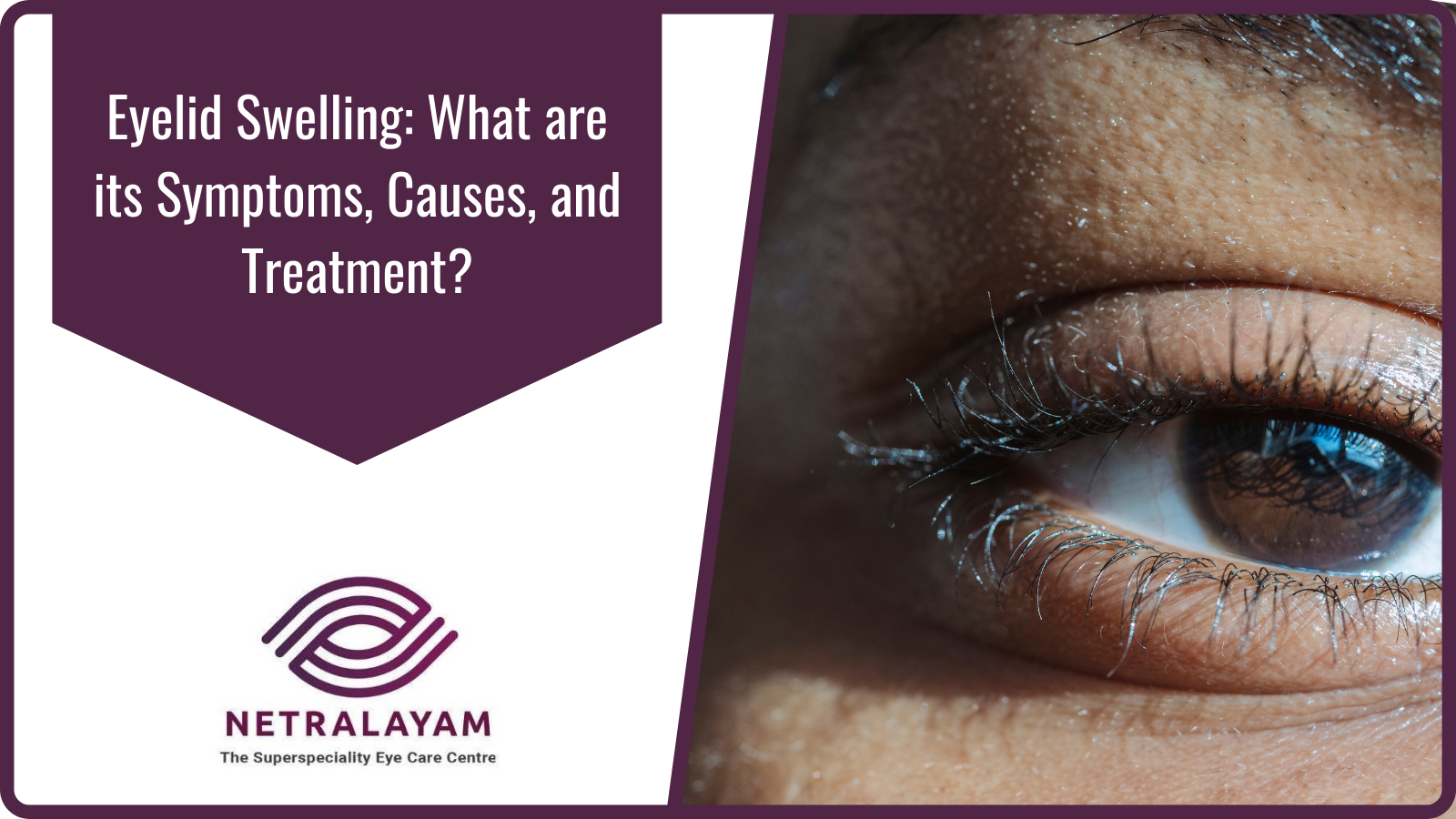Eyelid swelling is the enlargement of either or both the upper and lower eyelids or one or both eyes. It occurs due to inflammation in the delicate tissues surrounding the eyes or fluid buildup. The swelling may be localized to the entire eyelid or a small area. Such a condition may also be referred to as puffy eyelids or puffy eyes.
In some cases, swollen eyelids can be painful. Depending on the cause, the pain can be either mild or harsh.
What are the symptoms of eye swelling?
The swelling of the eyelids may have various symptoms depending on the underlying condition or disorder. For instance, eyelids can swell due to chalazion and may not accompany any other symptom. But eyelid swelling due to an allergic reaction may have symptoms like itchy eyes and sneezing. You may even have symptoms that can affect other body parts or systems. For instance, you may suffer from facial and leg swelling along with swollen eyes due to general edema.
Other than this, there are many other symptoms which include:
- Bleeding from the eye
- Increased light sensitivity
- Fever
- Headache
- Dry eyes
- Not being able to turn the eyeball
- Acute loss of vision
What are the causes of eye swelling?
Many conditions or factors can cause swelling in the eyelids. Some of them are as follows:
- Stye: A Staphylococcal infection of an eyelash follicle. This causes swelling due to inflammation. Swollen eyelid with stye has pus at the center and is painful to touch.
- Conjunctivitis: Severe inflammation of the conjunctiva due to bacteria or a viral infection that causes swelling, eye redness, and itchiness. Conjunctivitis can happen in one or both eyes.
- Blepharitis: The clogging of tiny oil glands near the base of the eyelashes. It can cause burning and swelling in one or both eyes along the edges of the eyelids.
- Chalazion: A red bump on the eyelid usually occurs when an oil gland called meibomian becomes blocked.
- Trauma: The presence of foreign objects in the eye, skull fractures, burns, etc., can cause eyelid swelling, along with discoloration.
What are the treatment options for eye swelling?
In most cases, swollen eyelids can be treated with simple homemade remedies like:
- Artificial tears or sterile saline to rinse the eyes
- Avoid contact lenses until the swelling goes away.
- Put cool compresses on your eyes to soothe them in case of edema.
- Use hot compresses for 5 to 10 minutes for chalazion and styes.
- Wash and rinse around your eyelids and pat them dry gently.
Some of the other options for medical treatments are:
- Incision and drainage of a chalazion, stye, or abscess.
- Oral antibiotics or antibiotic eye drops for bacterial infections.
- Corticosteroids or other eye drops for inflammation.
- Antiviral eye drops or ointments in case of shingles or herpes.
Prevention of eyelid swelling
It can depend on the following causes:
- Infectious causes: Cleaning the eyelids with a mild cleanser twice a day and not sharing your makeup with anyone.
- Fluid retention: Drinking plenty of water and consuming a low-salt diet as suggested by the physician to prevent your eyelids from swelling.
- Allergies: Using hypoallergenic facial products and using preservative-free eye drops.
How much time does it take to reduce eyelid swelling?
The time taken to reduce Eyelid swelling may depend on the following factors:
- In case of temporary causes, like allergies, eyelid swelling can be reduced in a few hours with homemade remedies.
- For blockade glands and minor infections, it may take 1 to 3 weeks for the swelling in the eyelid to go down with the right treatment.
- If you have serious problems like organ failure or thyroid disorders, the swelling may not be cured until the root problem is treated.
See Also: Watery Eyes: Causes, When to Get Medical Help, and Treatment Options
When to see a doctor for eye swelling
If you experience any life-threatening symptoms like neck stiffness, acute loss of vision, general edema throughout the body, high fever, severe headache, etc., you should immediately contact your doctor.
If you’re looking for the best eye care hospital in Kolkata to treat your eyelid swelling, visit your nearest eye hospital. We at Netralayam can provide you with the best services and treatment options as per your needs and requirements. Contact our medical team to book an appointment with us now.

